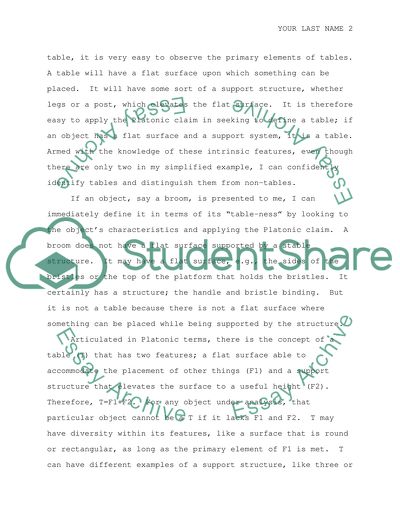Platonic and Knowledge-Definition Claims Essay Example | Topics and Well Written Essays - 1250 words. Retrieved from https://studentshare.org/miscellaneous/1515100-platonic-and-knowledge-definition-claims
Platonic and Knowledge-Definition Claims Essay Example | Topics and Well Written Essays - 1250 Words. https://studentshare.org/miscellaneous/1515100-platonic-and-knowledge-definition-claims.


